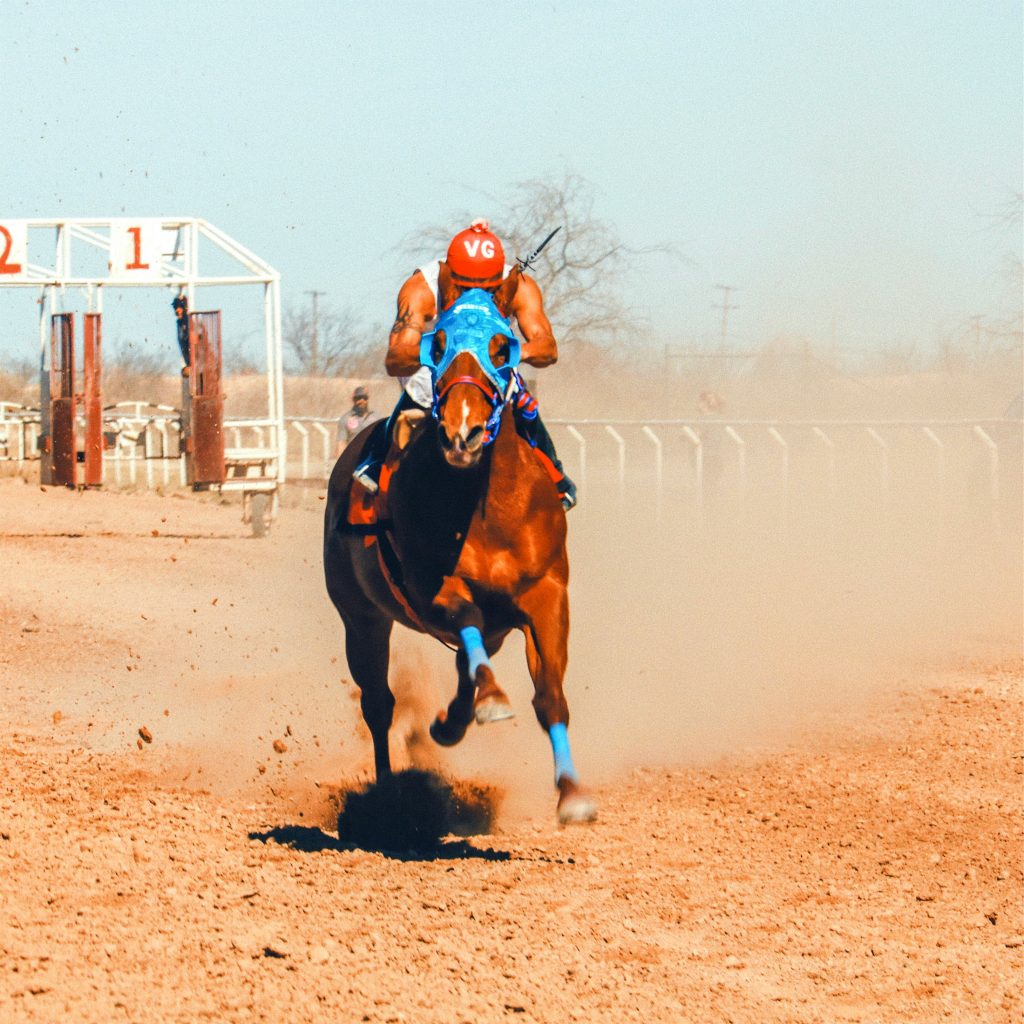ADDITIONAL INFORMATON ON HORSE RACE BETTING
The Impact of Weather on Horse Racing Outcomes
Horse racing is a sport full of excitement, unpredictability, and strategy. For those who enjoy betting on horse races, understanding all the factors that influence race outcomes is crucial for making informed wagers. While many bettors focus on the abilities of the horse, jockey, and trainer, one often overlooked factor is the weather. Weather conditions can significantly impact a race, affecting the performance of horses and altering the dynamics of the track. In this article, we will explore how various weather effects influence horse racing outcomes and provide betting tips to help bettors account for these conditions when placing their bets.


Understanding the Relationship Between Weather and Horse Racing
Weather plays a vital role in horse racing outcomes, with different conditions influencing the performance of horses, jockeys, and the track itself. Whether it’s a hot, sunny day or a wet, rainy afternoon, the weather can drastically change how a race unfolds. Different horses respond to weather conditions in various ways, depending on their breed, training, and individual preferences. By understanding how the weather can influence racing conditions, bettors can gain an edge when making their selections.
Weather Effects on Different Types of Racing Tracks
One of the most significant ways weather impacts horse racing outcomes is through its effect on different types of racing tracks. In horse racing, tracks are usually categorized into turf (grass), dirt, and synthetic surfaces. Weather conditions influence each surface differently, leading to changes in race dynamics that can affect the performance of horses.
Turf Tracks
Turf tracks are composed of natural grass and are highly susceptible to changes in weather conditions. Rain can turn a firm turf track into a soft, heavy surface that slows down horses and makes footing more challenging. In dry conditions, however, a turf track can become firm, allowing horses with speed to excel. When betting on races held on turf, it’s essential to consider how much rain the track has received and how the condition of the turf has changed. Horses that are accustomed to soft turf, often referred to as “mudders,” can have a significant advantage in wet conditions.
Dirt Tracks
Dirt tracks, common in countries like the United States, can also be affected by rain and heat. Wet weather can turn a dirt track into a sloppy, muddy mess, making it more difficult for horses to maintain their speed. On the other hand, a dry, fast dirt track favors horses that can maintain high speeds throughout the race. Bettors should pay attention to how horses perform on both fast and sloppy dirt tracks, as some horses excel in one condition but struggle in the other.
Synthetic Tracks
Synthetic tracks are designed to be less affected by weather, offering more consistency than dirt or turf. However, even synthetic tracks are not immune to weather-related changes. Heavy rain can still impact drainage and surface conditions, affecting how horses perform. In warm weather, synthetic tracks can become faster, while cold conditions may lead to a slower pace. While betting on synthetic track races, it’s essential to review how horses have performed on synthetic surfaces in various weather conditions.
How Different Weather Conditions Impact Horse Performance
Beyond the racing surface, different weather conditions can directly impact the horses themselves. Horses, like humans, are sensitive to changes in temperature, humidity, and air pressure. Let’s examine how various weather conditions influence horse performance on the track.
Rain and Wet Conditions
Rain is one of the most obvious weather factors that can influence horse racing outcomes. Wet conditions create slippery, uneven surfaces that can make it difficult for horses to maintain traction. Horses that are comfortable running in the mud, often referred to as “mudders,” tend to have an advantage in these conditions. Trainers sometimes condition their horses to handle wet tracks by training them in similar conditions. Bettors should pay close attention to a horse’s past performance in rainy conditions before making their selections.
Heat and High Temperatures
Hot weather can have a noticeable effect on horse performance. High temperatures cause horses to fatigue more quickly, which can lead to slower race times, especially in longer races. Horses that are well-conditioned and have experience racing in hot climates are more likely to perform well under these conditions. On particularly hot days, trainers may adjust their strategies, opting for a more conservative pace to prevent their horses from overheating. Bettors should consider a horse’s previous experience racing in hot conditions and factor in potential fatigue when analyzing race outcomes.
Cold Weather
Cold weather can be both an advantage and a challenge for horses. While horses generally prefer cooler conditions to extreme heat, freezing temperatures can make it difficult for horses to stay loose and agile. Cold conditions can also impact a horse’s breathing, as cold air may constrict their airways, making it harder to maintain top speed. However, horses with thicker coats or experience racing in colder climates are less likely to be affected. Bettors should review a horse’s racing history to determine how it has performed in cold weather conditions.
Wind
Wind is a less obvious weather factor but can still play a significant role in horse racing outcomes. Strong headwinds can slow down horses and make it harder for them to maintain their pace, while tailwinds may provide a slight speed boost. Crosswinds, on the other hand, can disrupt a horse’s rhythm and balance, making it difficult for them to stay on course. When betting on windy race days, consider the wind direction and how it may impact the horses throughout the race.
Betting Tips: How to Account for Weather When Placing Bets
Understanding how weather impacts horse racing outcomes is essential for any serious bettor. Here are some betting tips to help you factor in weather conditions when placing your bets:
1. Check the Weather Forecast
Always check the weather forecast for race day before placing your bets. Knowing whether rain, heat, or wind is expected can give you valuable insights into how the race may unfold. You can adjust your betting strategy based on the expected conditions and how they may affect the track and the horses.
2. Research Horse Performance in Similar Conditions
One of the best indicators of how a horse will perform in certain weather conditions is its past performance. Research how horses have fared in wet, dry, hot, cold, or windy conditions. Horses that have a history of performing well on muddy or sloppy tracks, for example, are more likely to excel in similar conditions.
3. Consider the Track Surface
As discussed earlier, different track surfaces react differently to weather conditions. When betting, take into account the type of surface the race will be run on and how it may change due to weather. Some horses may perform better on synthetic tracks under certain conditions, while others may struggle on wet turf.
4. Monitor Trainer and Jockey Strategies
Trainers and jockeys often adjust their strategies based on weather conditions. In hot weather, for example, a jockey may adopt a slower pace early in the race to conserve the horse’s energy. Pay attention to any changes in tactics and how they may influence the race outcome.
5. Look for Value in Overlooked Horses
Many bettors overlook how weather conditions can impact a race, creating potential value opportunities. Horses that are strong performers in adverse conditions may have longer odds, presenting an excellent opportunity for savvy bettors to take advantage.
Weather is an important yet often underestimated factor in horse racing outcomes. Rain, heat, wind, and other weather conditions can dramatically impact the performance of horses, the condition of the track, and the strategies of trainers and jockeys. By understanding how weather affects racing and incorporating this knowledge into your betting strategy, you can improve your chances of making informed wagers and finding value in overlooked opportunities. When it comes to horse racing, don’t let the weather catch you off guard—use it to your advantage.